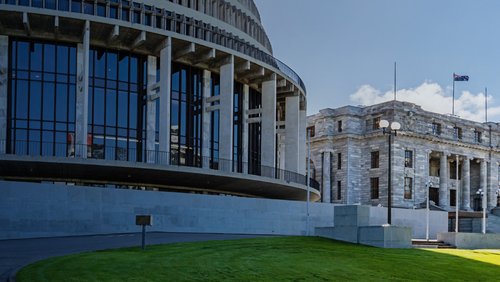16 Sep 2025
More than 30 leading organisations from across New Zealand’s engineering, construction, manufacturing and trade sectors are calling on the Government to urgently overhaul the country’s standards system.
In an impressive show of unity, the industry has written to key Ministers requesting urgent action. They say the current model for funding and accessing technical standards is outdated, expensive and slowing down progress in key sectors. Requiring industry to both fund and volunteer to develop standards – and then pay to access them – is inefficient and unfair.
“This is one of the strongest signals yet that the system for managing our standards is simply not fit for purpose,” says Engineering New Zealand Chief Executive Dr Richard Templer. “We have wide and united support across the sector for change. The time to act is now.”
The joint letter highlights longstanding issues: outdated standards, high costs to access essential documents, over-reliance on unpaid volunteers, and a lack of alignment with law and innovation.
While the industry acknowledges the efforts of MBIE and Standards New Zealand to improve the system within current settings and in increased partnership with Standards Australia, the signatories argue the current economic model is not good enough – and risks undermining New Zealand’s growth and prosperity.
“We need a future-focused, affordable and technologically enabled system. The system is holding New Zealand back at a time when the increasing use of national standards for many current reforms is a government priority,” says Templer.
“We’re not asking for small tweaks. We need urgent reform, starting with how the system is funded and governed.”
The group is urging the Government to start with a complete overhaul of the funding model – calling for public investment that reflects the clear public good of standards. They want to see affordable or free access to essential standards, especially those required by law, and a system that makes access simple and scalable across organisations. Where appropriate, existing industry levies could be used to supplement this funding.
They’re also pushing for a clear, time-bound reform plan with real milestones and meaningful engagement. Smarter use of international standards, where fit for purpose, must be part of the solution, as well as better support and funding for the technical experts who volunteer their time.
“Ultimately, this is about creating a system that is modern, efficient and fit for the future – one that enables innovation, supports government reforms, and protects the safety and wellbeing of New Zealanders,” says Templer.
“This is about public safety, innovation, and enabling the industry to do its job. We’re ready to work with Government - now we need the political will to match the urgency.”







